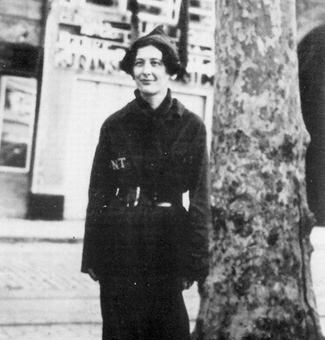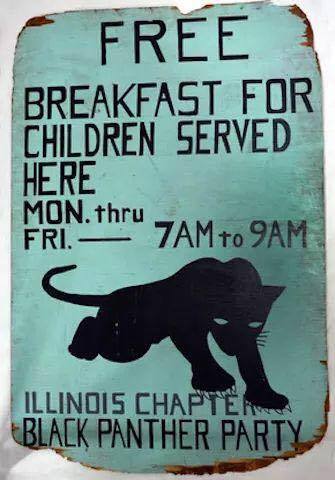
By Bernard E. Harcourt
Welcome to our last session of Coöperism 13/13!
The 13/13 in Exile
We meet on Wednesday night, May 1, 2024. We are all locked out of our university by the administration. We cannot enter campus or our offices. Faculty cannot enter campus. Students who do not live in a dorm on the Quad cannot get through the gates. Staff cannot get into the buildings. We have been shut out of our own university—at which thousands of students are paying exorbitant tuitions—for the past 48 hours, and the campus is shuttered tomorrow as well.
Yesterday, central administration and the university trustees called in the SWAT units of the NYPD and turned the campus and the entire Morningside Heights neighborhood into a militarized zone. The streets were blocked off from Broadway to Amsterdam between 110th all the way up to 125th Street. The avenues were swarming with paramilitarized police, in helmets, with batons and zip ties. There were columns of paramilitarized NYPD police throughout the neighborhood enforcing a self-styled curfew. Students were pushed into random buildings and told not to come out of the lobby unless they wanted to be arrested. Helmeted police blocked the entrances of private buildings near campus.
And then, phalanxes of paramilitarized NYPD officers stormed through the gates of the university on 114th and took over the campus, arresting over 100 Columbia students who were protesting the war in Gaza. Deploying a tank-camion from its counterterrorism arsenal, the NYPD spectacularly breached the top floors of Hamilton Hall and, guns drawn, overwhelmed a band of unarmed teenage student protesters.
The mass arrests were followed by misinformation, as Mayor Eric Adams and the administration claimed that the military-style operation had taken place “without incident.” And the media ate that up. The truth is that the media were not allowed to witness what happened. But the videos prove that the arrests were far from peaceful. We later found out that one of the SWAT team members discharged their firearm in Hamilton Hall. It is a miracle that did not unleash a firestorm of gunshots.
The Counterrevolution
A counterrevolutionary without a revolution: a paramilitary operation against a band of teenage college protesters who are unarmed.
This was the product of a cycle of escalation that could only be expected from the first abhorrent decision by the university administration to call the NYPD onto campus and arrest 108 peaceful protesters on April 17, 2024—at an entirely peaceful encampment.
The situation is now out of control. The administration has asked the NYPD to remain on campus and patrol and surveil campus through May 17, 2024. And tonight, 60 Columbia students will be arraigned in criminal court.
We have lost our university. Literally, we are not even allowed on campus. The NYPD are, but not the faculty, or students, or staff.
Columbia University is in crisis.
The American University In Crisis
The timing is tragic, but we had been planning this session on the cooperative university since last summer 2023. All of our work on coöperism this year was intended to take us here: to the question of radically rethinking the university as a cooperative.
Because the American University is in crisis.
We have experienced a decades long descent into academic disfunction brought about, among other things, by neoliberalism and the corporatization of college and universities.
Three Plagues
Three pests plague liberal arts higher education in the United States today: donors, politicians, and university administrators.
Donors, to whom universities are now beholden and who have little commitment to the liberal arts and critical thinking, now dictate university policies. The trustees have transformed their functions into corporate boards overseeing a corporate CEO.
Politicians have turned themselves into philosopher kings, dictating what history books to read, banning whole schools of critical thought, and meddling with the internal discourse on campuses.
Meanwhile the ever-growing, inflated ranks of good-meaning administrators, general counsel, some of whom are not necessarily steeped in the culture of the liberal arts, set the academic agenda of the university to protect against liability.
We all know why this is really going on. It boils down to a single statistic: persons with a liberal arts college education are far more likely to vote for the Democratic than for the Republican Party. As the New York Times reports, “College graduates are now a firmly Democratic bloc, and they are shaping the party’s future. Those without degrees, by contrast, have flocked to Republicans.” As a result, Republicans are trying to knee-cap higher education. They had been doing it by attacking Critical Race Theory and DEI programs. Now they are doing it under the guise of combatting anti-semitism.
But we also know that many of these folks do not really, honestly care about Jewish people. Most of them lean white nationalist. At the Congressional hearings on Columbia University, one Republican congressman grilled the university’s Egyptian-born president about the New Testament and the coming “curse of the God of the Bible.” No one said a word. That’s not about combatting anti-semitism; in fact it is tinged with Christian supremacy.
Regardless, the result is the same: politicians are attacking the university and shaping the way it engages in pedagogy, student mentoring, and research.
Critical thought and the liberal arts, though, are not about Democrats or Republicans. The wave of student protests against the war in Gaza is likely to undermine President Biden more than the Republican candidate Donald Trump. In fact, that is the strategy of the Republican party: to turn the young vote against Biden–to defeat Biden because of his policies and statements about the war in Gaza and the student protests. The Republicans have made their strategy clear, as Kali Akuno shows us, in this press conference of Republican senators held earlier today, May 1, 2024.
The real overarching ambition is to take down higher education because it supposedly poses a threat to Republicans.
In the face of all these attacks, what we need is to center the faculty and students of the university and other stakeholders, like workers and the community, and return to the values of the liberal arts. We need to explore the possibility of converting corporate universities into cooperatives.
Looking Elsewhere
There are a few examples of cooperative universities, but none of them squarely in the liberal arts.
The Mondragon cooperative consortium in Spain has the Mondragon Cooperative University, but most of its operations are tied to professional and trade learning in connection with their worker cooperatives.
There are cooperative universities in Nairobi, Kenya, and Bogota, Colombia, that focus their pedagogy on the functioning of worker and consumer cooperatives and the principles of cooperation, although they are not structured as faculty or student cooperatives.
In the United States, the term “co-op education” refers not to a university structured as a cooperative of faculty or students, but as one at which students do semester-long externships in the field. Northeastern University in Boston has always been a leader in this respect.
The idea of a truly cooperative liberal arts college would center the students and their faculty, and the other stakeholders in the cooperative, such as the staff and workers, and the community.
This is the most important challenge today: imagining a cooperative college.
The Cooperative University
How can we make it work? In this session, we are going to roll up our sleeves and explore the possibility of a coop university.
Converting Columbia University into a cooperative is, naturally, a tall challenge. A peak at its financial statements makes that clear. Columbia has a huge hospital that generates over $1.6 billion in patient care revenue. It has immense real estate holdings of almost $5 billion dollars—the largest real estate mogul in the city of New York. It has investments of over $14 billion dollars. Obviously it is hard to imagine converting all that into a cooperative.
But we can work with more manageable numbers if we turn to a smaller liberal arts college, and explore their financials, like Bard College, or even, nearby, a small college like Manhattan College (put aside that it is a religious school) that is going through difficult times—it is shuttering 20 departments, including philosophy, languages, art history, etc.
How could we imagine converting a liberal arts college into a cooperative?
To brainstorm all this, we are joined by a brilliant critical thinker and practitioner, Kali Akuno, the co-founder and co-director of Cooperation Jackson. A lifelong organizer, philosopher, practitioner, social builder, and author (author and editor of this great book, Jackson Rising), Kali Akuno has been involved in many human rights and social justice and solidarity economy projects, and is best situated to critically think through with us the idea of a coop university.
Andrew J. Douglas was going to join us as well, but is rightfully boycotting Columbia University in response to the massive arrests on campus.
Coöperism 13/13
The university, as a collegium of scholars and students, is under threat across the globe and in the United States. State governments are interfering with academic freedom and knowledge, dictating what can and cannot be taught. Private donors are interfering with the scholarly project and the discourse of learning. University administrators are throwing our shared values away. Whether at public universities or private universities, the climate of learning has become intolerable.
Join us for an exploration of another model: a multi-stakeholder cooperative university run by and for those who want to learn, to develop critical thought, to share community–the faculty and students, staff and workers, and the community. The model dates back to the Middle Ages at least, when universities were first born as cooperatives of faculty and students. Let’s explore together a new model for critical thinking and the liberal arts in the twenty-first century!
Welcome to Coöperism 13/13!




